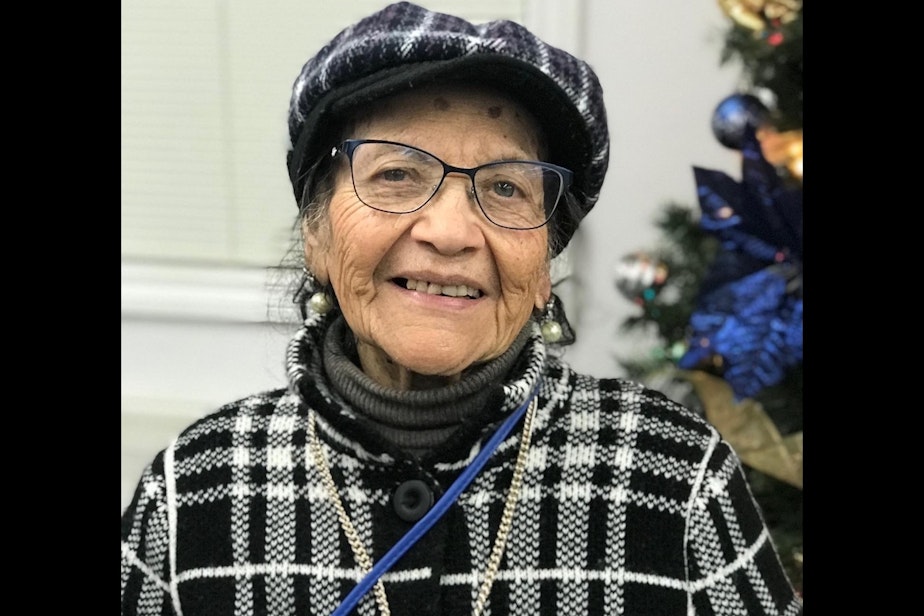A 'force to be reckoned with,' remembering REI seamstress Delia Cano

Today, REI has over 15,000 employees, but in the early 1960s, one employee, Delia Cano, a Peruvian immigrant to Seattle, was responsible for sewing many of their earliest products. She recently died, and KUOW’s Soundside spoke with two of her children about her personal and professional legacy.
When Delia Cano landed in Seattle in 1957, she was wearing a hand-sewn dress suit and had three children in tow. She spoke no English, and would later tell stories about how she marked an x on the airport walls with her lipstick so she wouldn’t get lost on the way to the bathroom in between flights.
Delia and her husband, Rodolfo Cano, were moving from Arequipa, Peru, to Seattle so Rodolfo could pursue his education at the University of Washington. Having left behind a successful seamstress business in Peru, Delia worked a variety of odd jobs before landing in the dividends department of REI, embossing membership cards that cost a dollar. At the time, a lot of REI’s business was ordering items from Europe to send to members. Delia noticed the company was often backlogged with European orders, and offered to sew similar items at her home, so she could be with her children.
Rain ponchos, zipper gators, stuffing bags, custom repairs and custom-built products came out of the basement in their house in Seattle. Rose Cano, her daughter, noted the cultural tie to the poncho.
“Ponchos are a traditional garment of Peru and it’s something hand woven by women, but here she adapted it to sportswear," she said. "I think she loved doing it. She was always humming and happy.”
It was also through REI that Delia did her most notable custom job. In 1965, Robert Kennedy was preparing to climb Alaska’s Mount Kennedy, named to commemorate his brother, President John F. Kennedy. Kennedy was a friend of Jim Whittaker, the first employee of REI and also the first American to summit Mount Everest. So when Kennedy needed new gloves, he turned to Whittaker and REI.
Sponsored
Rudy Cano remembers his mother sewing the gloves in their home and asking why they needed fur on the outside.
“She explained that in the mountains they’d need to be able to wipe their nose without taking their gloves off," he said. "Otherwise, their hands would freeze.”
Delia had five children throughout her life. Her youngest, Lupita Cano, was born with Down syndrome. As was common at the time, doctors recommended Lupita be institutionalized at birth. Delia and Rodolfo ignored that advice, instead bringing Lupita home to be with her siblings.
Delia became an advocate for the disabilities movement, demanded Seattle Public Schools provide education for those with disabilities, and eventually spoke in front of the state Legislature and contributed to the work of the Education For All Act (House Bill 90), which passed in 1971.
Reflecting on his mother’s legacy, Rudy noted, “It just seemed normal in the sense that she was this force to be reckoned with, and just wouldn't stop. Lupita was so much on her heart.”
Sponsored
When asked what memories of her mother she was holding close in the weeks following Delia’s death, Rose joked, “How much time do you have?”
Clarification: In the audio version of this story we implied Delia’s employment at REI started in the 1970s. She started working for REI in the 1960s.






